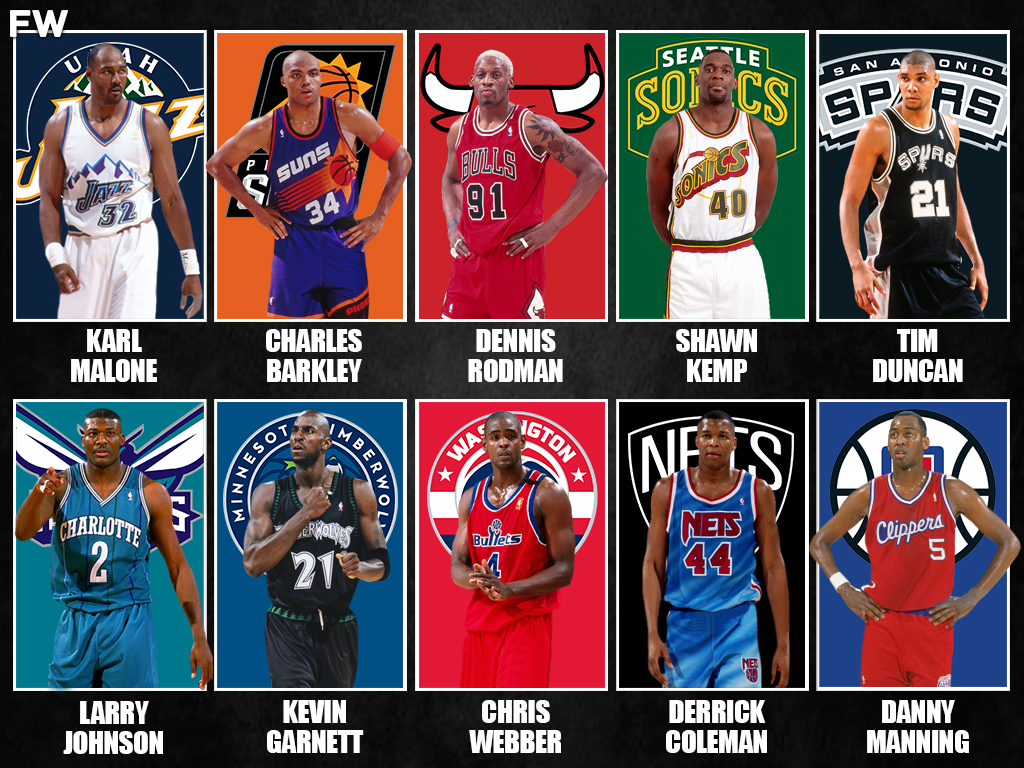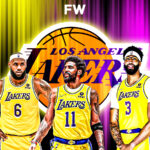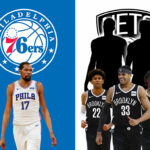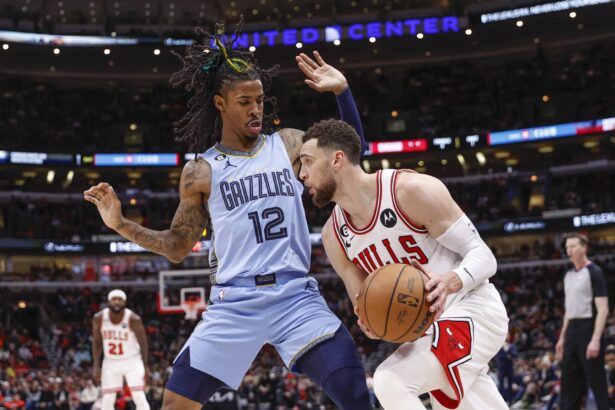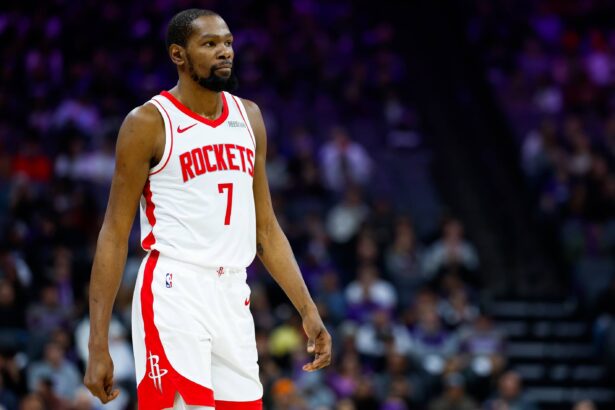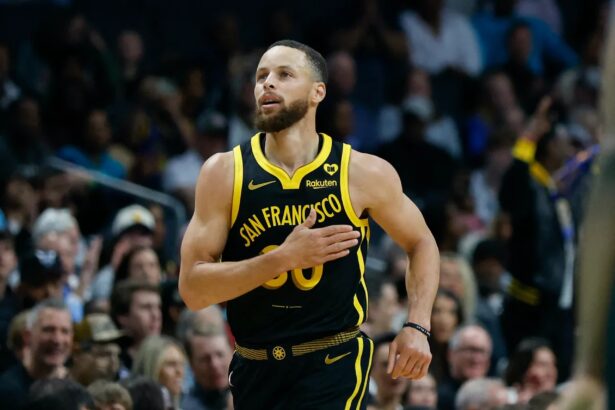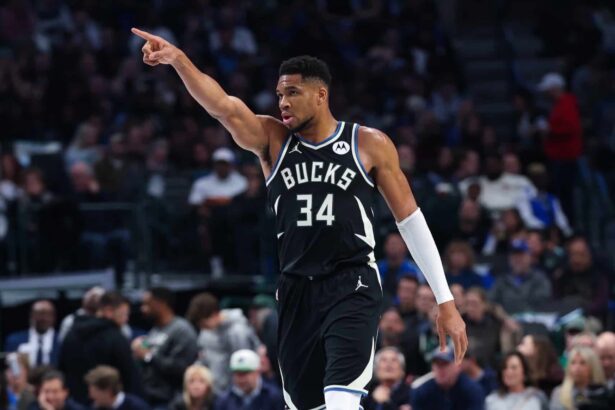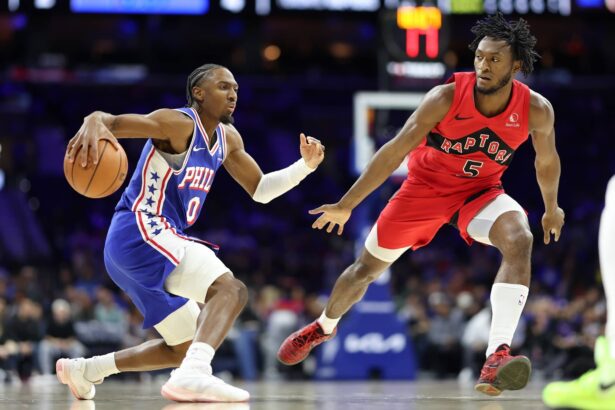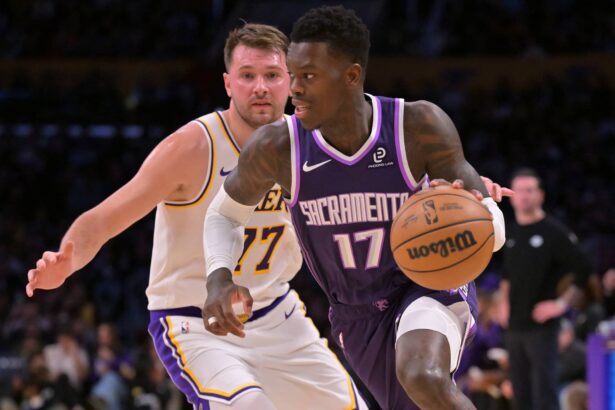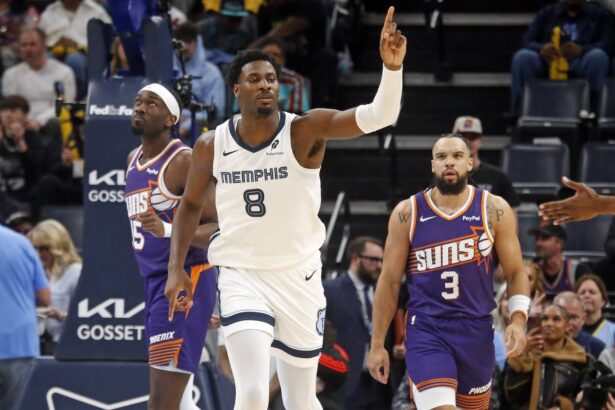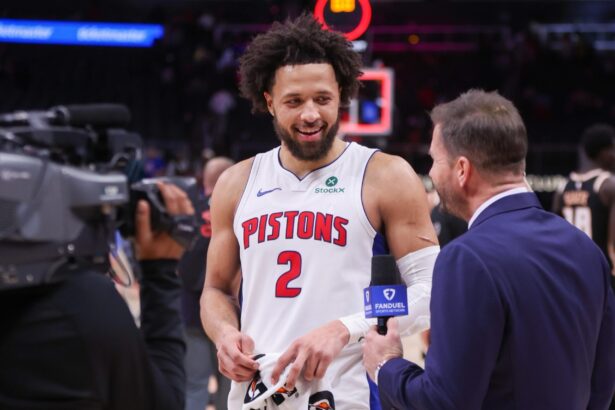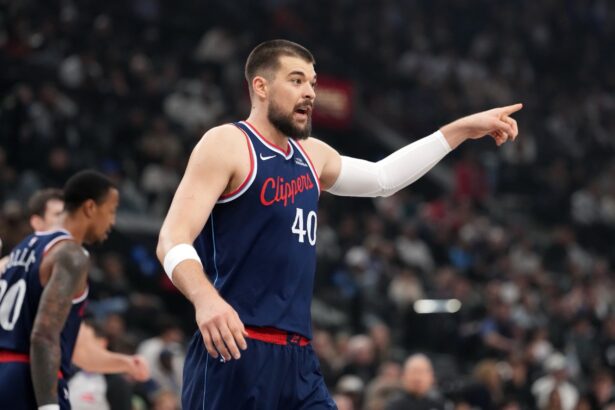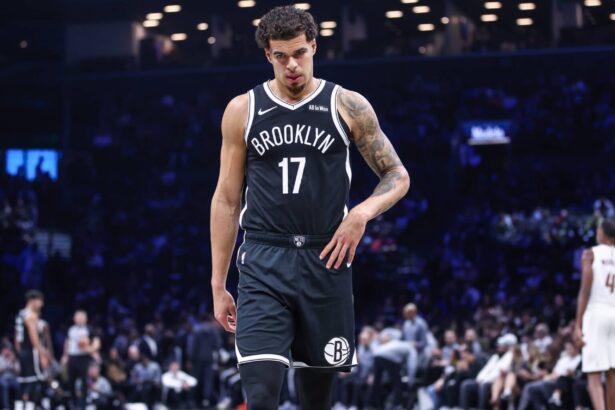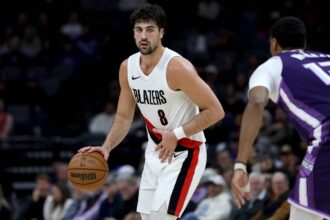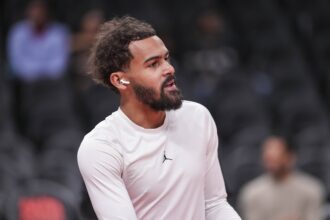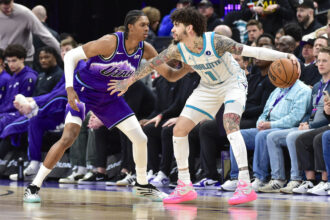The decade of the 1990s can only be considered the Golden Age for NBA power forwards. There was so much talent across the league at this one position that making a Top 10 list is as difficult as grabbing a rebound from Charles Barkley. Great players with tremendous skill will be left off the list, and that is bound to happen when you take a large sample size and widdle it down to just 10. These power forwards are MVPs, Hall Of Famers, and some of the greatest to ever grace the NBA hardwood.
Some of the names being left off of this list today will ruffle some feathers but let’s give them their due. Vin Baker was an outstanding power forward for the Bucks and SuperSonics in the 90s, a 4x All-Star, and at his peak, was a 21.0 PPG and 10.0 RPG player. Anthony Mason was a rugged and physical power forward for the Knicks and Hornets in the 90s and was named to an All-NBA Team in 1997. There are many more 90s power forwards who can be named as honorable mentions, but it is time to move on to the main event.
Here are the 10 Greatest NBA power forwards of the 1990s.
10. Danny Manning
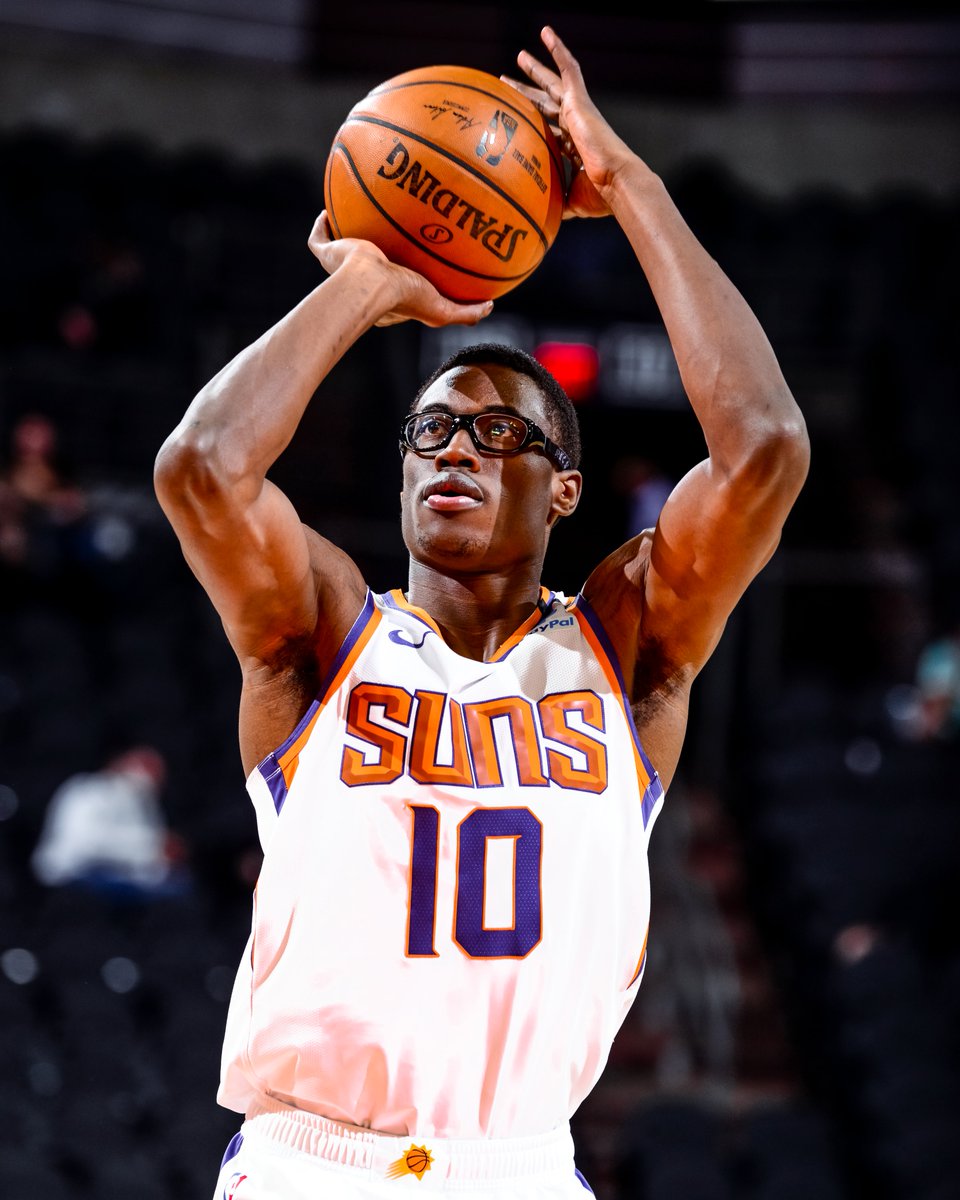
1990-91 to 1999-00 Accolades:
1x Sixth Man Of The Year
2x All-Star
Coming out of the University of Kansas, Danny Manning was a tall and athletic power forward who left the school as their all-time leader in points and rebounds. Unlike other power forwards, Manning relied on a finesse game rather than power in the post. With his incredible athletic ability, Manning would stretch a bit further than most power forwards and preferred to take defenders off the dribble. We were robbed of his full potential due to a knee injury in his rookie season with the Los Angeles Clippers. He was still able to reinvent himself and enjoy success as both a starter and off of the bench.
By the 1992-93 season, Danny Manning had developed into an All-Star. That season with the Clippers, he averaged 22.8 PPG, 6.6 RPG, 1.4 SPG, and 1.3 BPG. Not known for his defense much at all, Manning had grown into quite the two-way player despite the knee injury he suffered in his rookie season. He was named an All-Star again the following season when he averaged 23.7 PPG, 7.0 RPG, 1.3 SPG, and 1.4 BPG in 42 games with the Clippers before being traded to the Hawks. After moving on to Phoenix in 1994, Manning had taken a role off of the bench for the Suns and thrived there as well. He won the NBA’s Sixth Man Of The Year Award In 1997-98 with 13.5 PPG, 5.6 RPG, 1.1 SPG, and 1.0 BPG.
9. Derrick Coleman
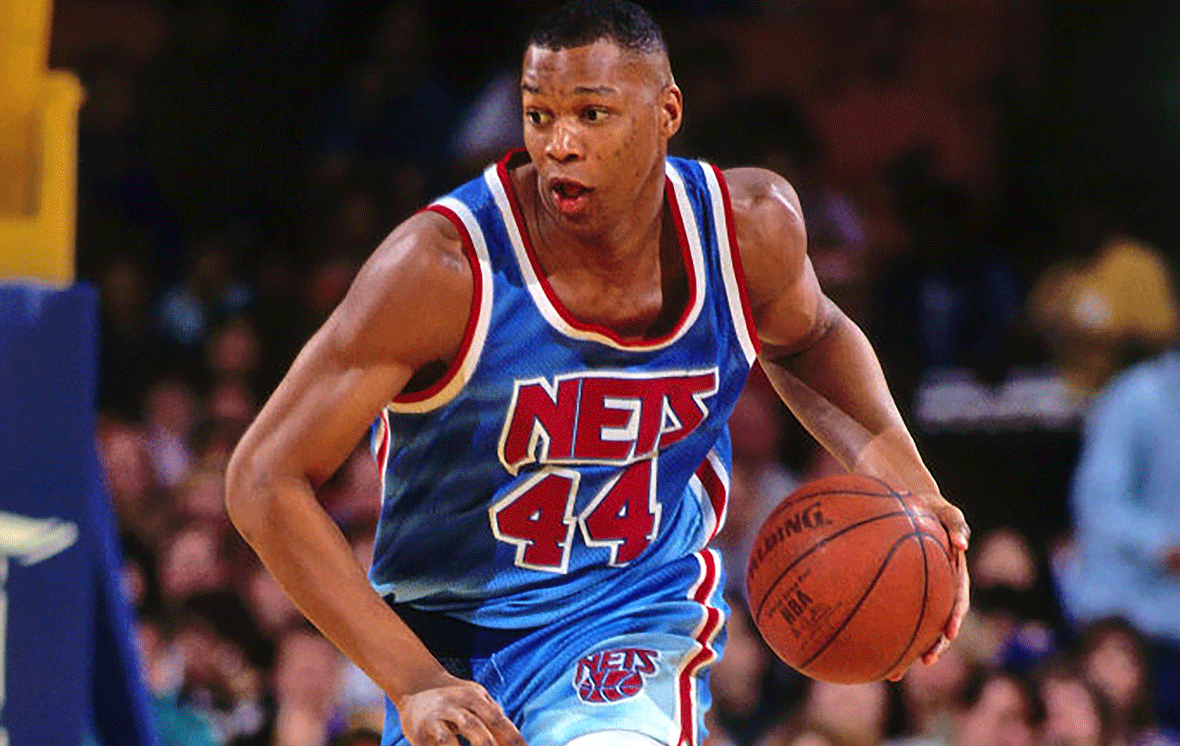
1990-91 to 1999-00 Accolades:
1x Rookie Of The Year
1x All-Star
2x All-NBA Team Selection
Drafted No. 1 overall in 1990 by the Nets, Derrick Coleman had very high expectations set upon him by the Metropolitan media and fans. Standing at 6’10, 230 pounds, Coleman made a name for himself at Syracuse University, feasting against some formidable Big East big men. In the NBA, Coleman displayed his versatility by spreading the floor and knocking down outside jump shots. He wasn’t exactly the workhorse that everyone expected, but he still was effective and good enough to land in our Top 10.
You can go as far as to say that it was Coleman who laid the groundwork for today’s prototypical big man. He took home Rookie Of The Year in 1991, averaging 18.4 PPG and 10.3 RPG on 46.7% shooting. He earned his first All-NBA Team selection in 1993 with 20.7 PPG and 11.2 RPG on 46.0% shooting. He was named an All-Star for the only time in his career the following season and earned another ALl-NBA Team selection. He averaged 20.2 PPG and 11.3 RPG on 44.7% shooting that season. In his 5 seasons with the Nets, he averaged 19.9PPG and 10.6 RPG.
8. Chris Webber

1990-91 to 1999-00 Accolades:
1x Rookie Of The Year
2x All-Star
2x All-NBA Team Selection
Chris Webber was one of the premier power forwards of the 2000s, but he did just enough to crack the Top 10 of the 90s as well. Webber was another versatile power forward who was lethal on the fast break with his speed and explosiveness. He was extremely versatile as well as one of the best passers at his position, and an efficient mid-range knockdown shooter. He enjoyed success with the Warriors, and Bullets and began his stint with the Kings at the back end of the 90s.
Webber burst onto the scene with the Warriors in the 1993-94 seasons and easily took home Rookie Of The Year with 17.5 PPG and 9.1 RPG. By the time he began his 2nd season in the NBA, Webber was on a new team but was the same dual threat on the court. His first season with the Bullets marked the beginning of a 9-year stretch where he averaged at least 20.0 PPG and 9.5 RPG. By the time the decade was coming to an end, he was a perennial All-Star and an All-NBA Talent. In 1998-99 with the Kings, Webber averaged 20.0 PPG and led the league with 13.0 RPG. His best years were still ahead, but he was quite easily one of the best of the 90s.
7. Kevin Garnett

1990-91 to 1999-00 Accolades:
3x All-Star
2x All-NBA Team Selection
1x All-Defensive Team Selection
Kevin Garnett is another power forward who peaked during the 2000s but did enough to be considered Top 10 in the 90s. From a young age, Garnett brought that infamous intensity that he was known for most of his career. Offensively, he was both a dominant paint scorer with the ability to step out and knock down medium-range to outside jump shots. It was defensively, though, that made him the difference maker he was. He could lock down the NBA’s best bigs in the paint with the strength and athleticism to keep them at bay. He could also step out to the perimeter and take on the task of guarding small forwards and even shooting guards. His versatility made him a legend by the time it was all said and done.
It took just a season and a half for Garnett to become an All-Star averaging 17.0 PPG, 8.0 RPG, and 2.1 BPG in just his 2nd season. By the time the decade was coming to a close, he was an All-NBA level player. He made the All-NBA 3rd Team in 1998-99, averaging 20.8 PPG, 10.4 RPG, 4.3 APG, 1.7 SPG, and 1.8 BPG. The following season, Garnett was named to both the All-NBA First Team and All-Defensive First Team. He averaged 22.9 PPG, 11.8 RPG, 5.0 APG, 1.4 SPG, and 1.8 BPG. This was just a sign of things to come for Garnett.
6. Larry Johnson
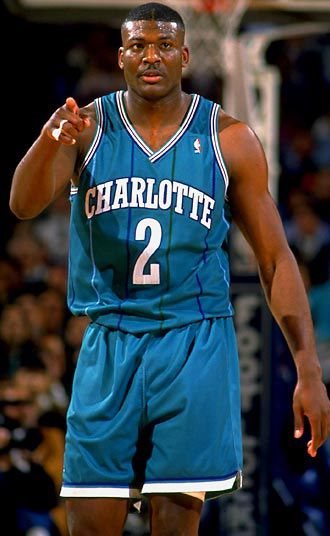
1990-91 to 1999-00 Accolades:
1x Rookie Of The Year
2x All-Star
1x All-NBA Team Selection
Larry Johnson was not only one of the best power forwards in the game in the 90s, but one of the best players overall in the 90s. He was explosive and ran the floor on a mission to finish every play with authority. He instilled fear into paint defenders everywhere as he soared through the lane, ready to dunk over everyone that got in his way. He was almost as if he had a personal vendetta against every one of his opponents. By the time the 90s were coming to an end, we had been robbed of his full potential due to back injuries, but his healthy years were still very special.
Drafted 1st overall out of UNLV in 1991, the expectations were high for Johnson. He responded by taking home Rookie Of The Year with 19.2 PPG, 11.0 RPG, and 1.0 SPG. In his second season, Johnson earned the first and only All-NBA Team selection of his career. He made the All-NBA Second Team with 22.1 PPG, 10.5 RPG, and 4.3 APG. He would finish his 5 seasons with the Hornets with averages of 19.6 PPG, 9.2 RPG, and 4.1 APG. As he went on to the Knicks, Johnson became more of a post-up player and perimeter shooter after back injuries severely thwarted his athleticism. Nevertheless, his peak years were enough to land him in the Top 10 of the 90s.
5. Tim Duncan
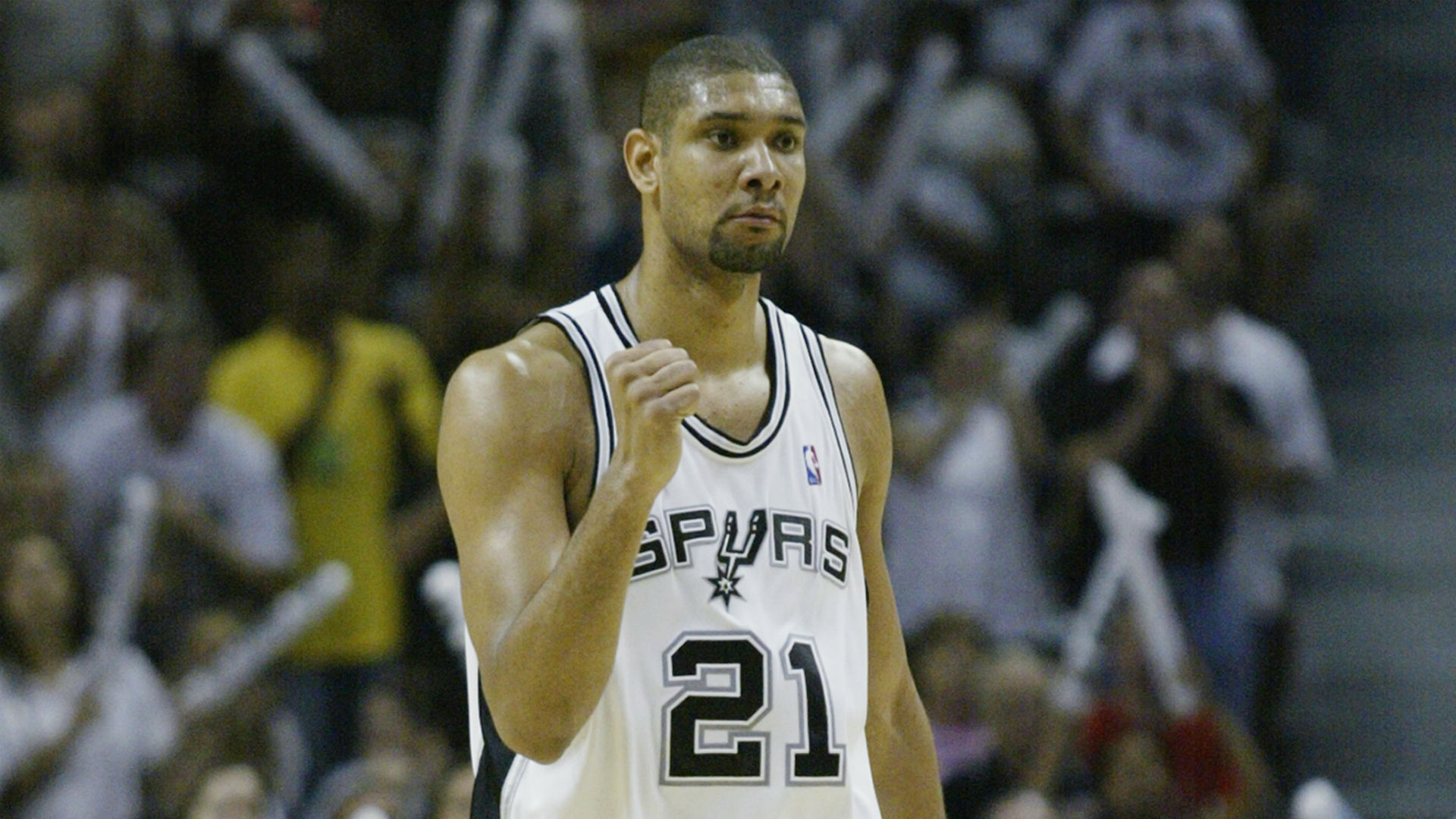
1990-91 to 1999-00 Accolades:
1x NBA Champion
1x Finals MVP
1x Rookie Of The Year
2x All-Star
3x All-NBA Team Selection
3x All-Defensive Team Selection
Is it a little premature to name Duncan one of the greatest power forwards of the 90s despite just 3 seasons played in the decade? Well, no, it is not when you consider what he accomplished in those 3 seasons. Duncan was as impactful to the San Antonio Spurs as any young player has ever been for any team. In his rookie year, The Spurs went from a 20-62 record to a team that won 56 games and finished 2nd in their division. Duncan’s all-around game was ridiculed for being boring and simple, but he won, and he dominated the competition while winning.
Duncan took home Rookie Of The Year with 21.1 PPG, 11.9 RPG, and 2.5 BPG. He was named to the All-Defensive Second Team as well, but it is what he did in his 2nd season that gives him such a boost on our list. During the regular season, he was named to the All-NBA and All-Defensive First Teams while finishing 3rd in MVP voting. In the playoffs, he led the Spurs to ultimate glory by winning the first NBA championship in franchise history. Duncan claimed Finals MVP by averaging 27.4 PPG, 14.0 RPG, and 2.2 BPG. With one of the greatest sophomore seasons in NBA history and immediately becoming one of the best players in the league, Duncan finds himself Top 5 of the 90s and Top 1 of the 00s.
4. Shawn Kemp
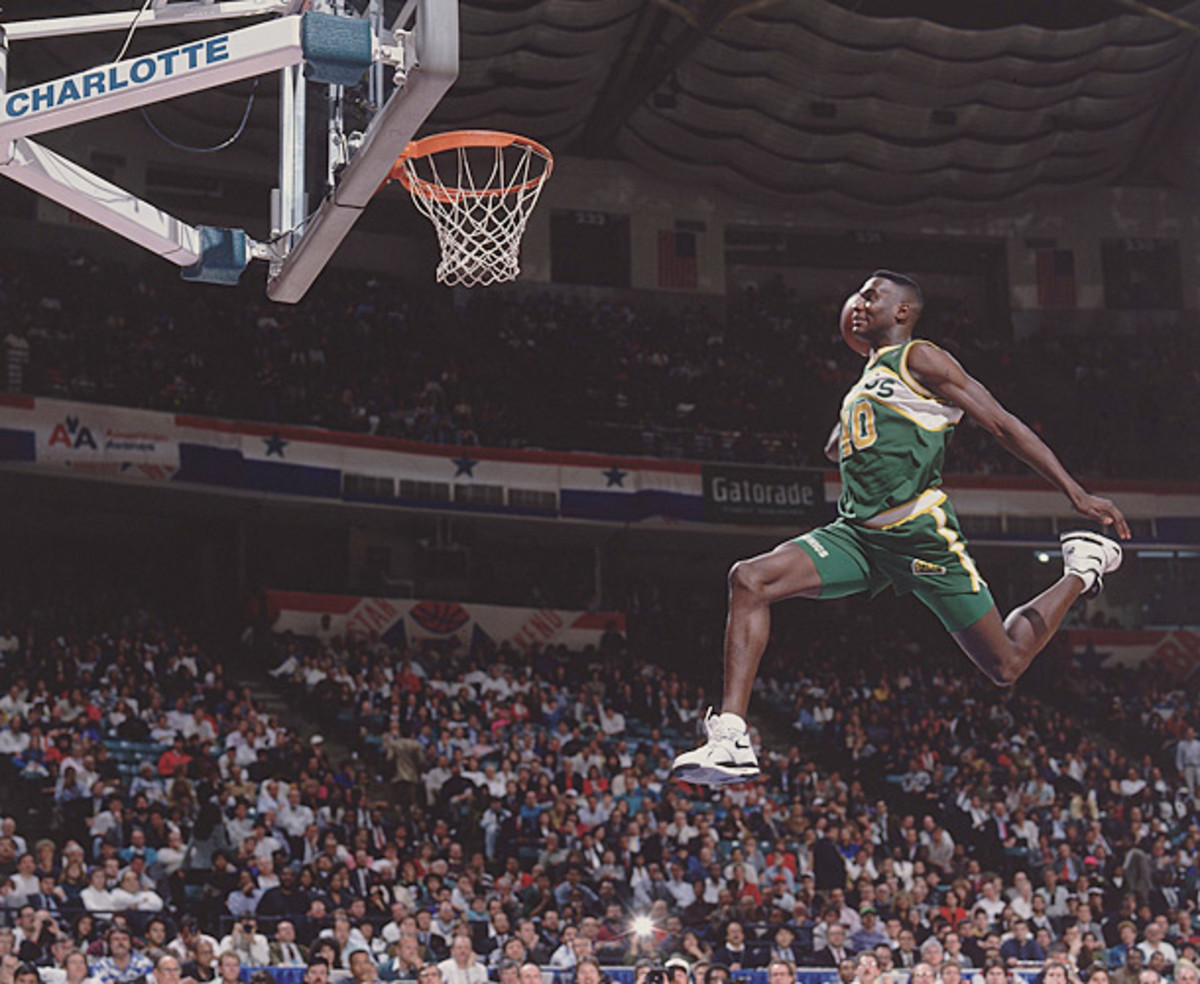
1990-91 to 1999-00 Accolades:
6x All-Star
3x All-NBA Team Selection
Shawn Kemp was one of the most explosive and entertaining players of the entire 90s decade. He was a rim-rocker who, with his height and athleticism, was a walking highlight waiting to happen. It wasn’t all about his earth-shattering dunks, though, Kemp was quite the mid-range shooter and even p[erimeter shooter as well. When he got out into open space for transition opportunities, look out for the chemistry between him and Gary Payton to make memories.
Kemp went to 6 straight All-Star games from 1993 through 1998. You could say he peaked in 1996 when he and Payton led the Seattle SuperSonics to the NBA Finals. In the regular season, he averaged 19.6 PPG, 11.4 RPG, 1.2 SPG, and 1.6 BPG. The SuperSonics ran into the 96’s Bulls in the Finals, but it was argued that Kemp was the best player on the floor. He averaged 23.3 PPG, 10.0 RPG, and 2.0 BPG in the 6-game series. Kemp left his everlasting mark on the league in the 90s that still resonates with fans and historians today.
3. Dennis Rodman
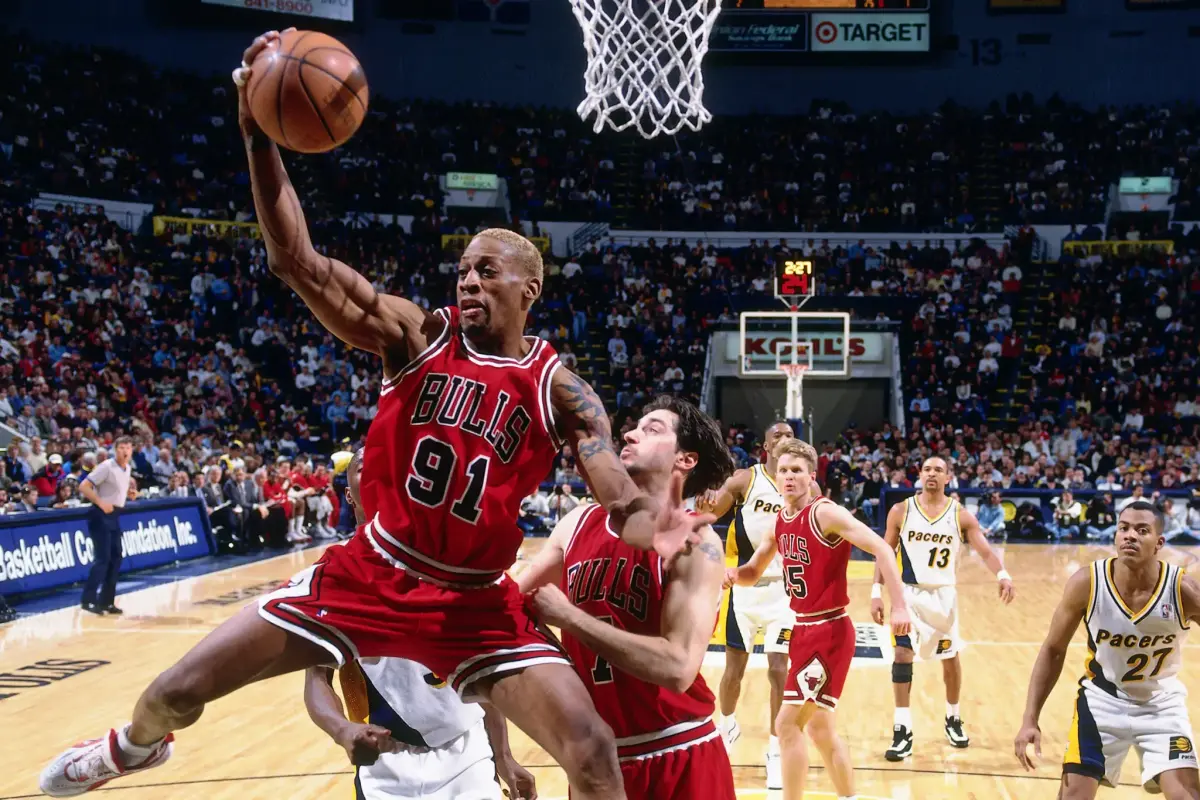
1990-91 to 1999-00 Accolades:
3x NBA Champion
1x Defensive Player Of The Year
2x All-NBA Team Selection
6x All-Defensive Team Selection
Dennis Rodman was not someone who was going to blow you away with his offensive acumen. His bread and butter was his defense and his rebounding as one of the best at both. A matchup with Rodman is exactly what we mean when we use the word “dogfight” to describe it. He was going to get physical and try to get in an opponent’s head every time down the floor. He was going to scrap for loose balls and obliterate any opponent on the glass. He knew precisely where a ball was going to bounce by actually studying the rim pregame. He was a mad genius when it came to defense and rebounding and it showed.
Rodman’s efforts made him a valuable piece to 5 NBA championships in his career. It started with his stint with the Detroit Pistons where he ended up becoming a 2-time NBA champion in 1989 and 1990. He won a Defensive Player Of The Year Award in 1989 and another one in 1991 as well. Using those same defensive tactics that made him so successful before, he became a key member of the Chicago Bulls in 1996. Along with Scottie Pippen and Michael Jordan, he helped the Chicago Bulls to their 2nd three-peat of the decade from 1996 to 1998.
2. Charles Barkley
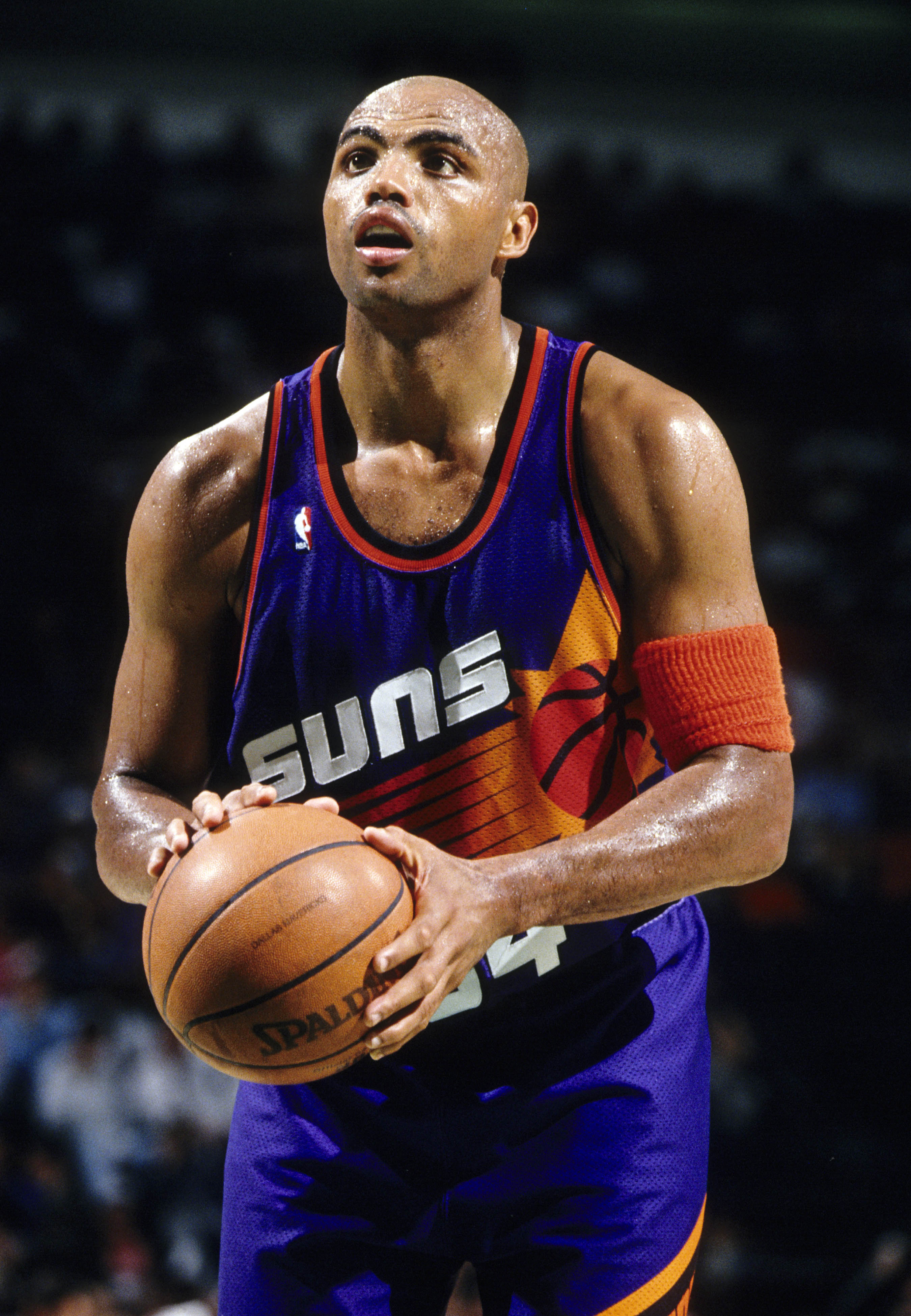
1990-91 to 1999-00 Accolades:
1x MVP
7x All-Star
1x All-Star Game MVP
6x All-NBA Team Selection
Charles Barkley was a little bit of everything at the power forward position in the 90s. He was as dominant of a rebounder as anyone else in the decade. He could shoot from all three levels on offense. He was one of the best playmakers at the position. He could handle the ball and blow by defenders off the dribble or in the post. He could drop in fadeaways from the low block. One thing that doesn’t get spoken of enough when it comes to Barkley is his heart. He was a relentless and ruthless competitor who gave it his all for 16 years.
Barkley was at the pinnacle of his career in the 1990s, blooming into an MVPO before our very eyes. In the 1992-93 season when he won the award, he led the Suns to a 62-20 record under Coach Paul Westphal. He averaged 25.6 PPG, 12.2 RPG, a career-high 5.1 APG, 1.6 SPG, and 1.0 BPG. He led the Suns to the NBA Finals behind playoff averages of 26.6 PPG, 13.6 RPG, 1.6 SPG, and 1.0 BPG. He made 7 straight All-Star appearances in the decade as well as 6 straight All-NBA Teams. Sir Charles was truly a 1-of-1 type player who left a profound mark on NBA history.
1. Karl Malone
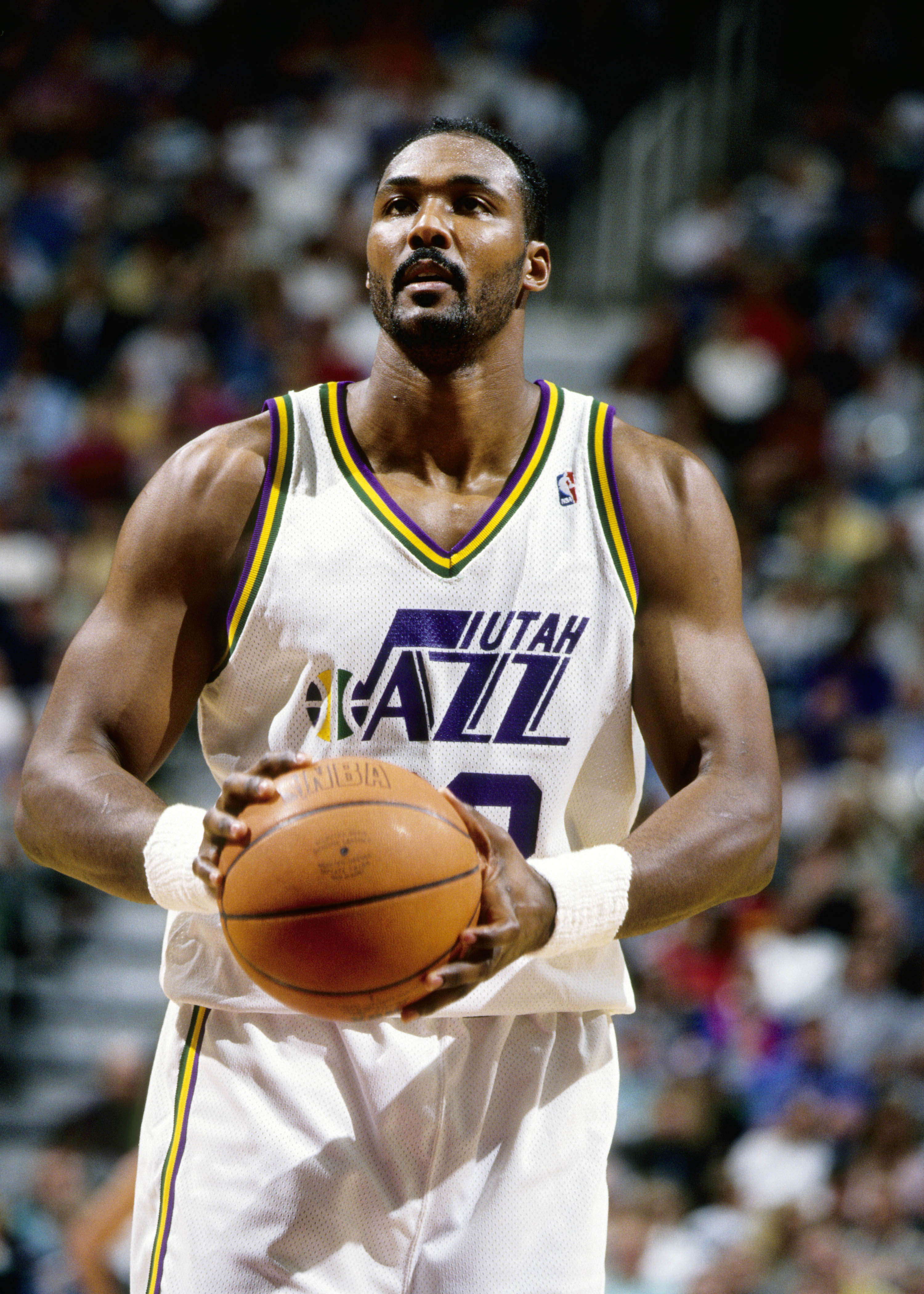
1990-91 to 1999-00 Accolades:
2x MVP
8x All-Star
1x All-Star Game MVP
10x All-NBA Team Selection
3x All-Defensive Team Selection
If John Stockton was the brains of the 90s Jazz, Karl Malone was the heart, soul, and spirit. Malone gave opponents nightmares on his way to becoming the 2nd (now 3rd) leading scorer in NBA history. Malone was built like a brick house and it was that size and strength that allowed him to be virtually unstoppable in the paint and on the low blocks. He ran the floor very well and always found himself filling the lane on fast breaks. He possessed a deadly medium-range jumper and developed into an elite defender in his later years. Had it not been more a man named Michael Jordan and the Chicago Bulls, we might be talking about Karl Malone in a completely different way.
Karl Malone took home 2 MVP awards, Led the Jazz to back-to-back NBA Finals, and made the All-Star Game every year in the 90s. He took home his first MVP award in 1997 when he averaged 27.4 PPG, 9.9 RPG, 4.5 APG, and 1.4 SPG. The Jazz finished with a record of 64-18 record and made it to the NBA Finals but their season was cut short when Jordan “took it personally”. Malone and John Stockton again led the Jazz back to the NBA Finals in 1998, but were beaten once again by Jordan and the Bulls. Malone would win another MVP award in the 1998-99 season averaging 23.8 PPG, and 9.4 RPG. Malone averaged at least 23.0 PPG every season during the 1990s. With the success to match the skill and talent, Karl Malone is our No. 1 power forward of the 1990s.

